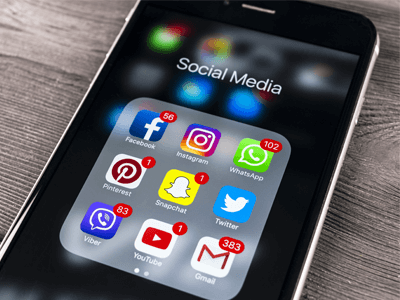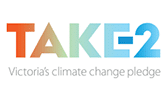Welcome to the year 2021, where Apple claims it is more trustworthy with your data than tech giants Facebook and Google. We explore what the changes could mean for your business and steps to work around the issues when they come alive.
What are the Apple iOS14.5 Changes to Privacy?
Apple is changing the way apps can track user activities across their devices with the new upcoming iOS14.5 update. In brief, the main change is it will ask users whether the app can track them or not. Whereas in the past, it relied on users to opt-out themselves with no prompt.
If you select opt-in, it means the app can collect your data. If you decide to opt-out, the data the app can collect is limited.
Apple releases operating software changes to provide new features and fix bugs across its devices. The company (along with Samsung) was also busted for decreasing battery life and slowing down older devices.
The update delayed from September 2020 now expected to roll out on 26 April 2021 follows a recent change where Apple shows users how apps use personal data in its App Store.
The list of changes to this update include:
- Opt-in prompt for users to decide whether they allow an app to track them or not
- Safari website browser report to show you which apps and websites are tracking you
- Detailed information in the app store about what data an app collects when you opt-in or use it
- Password alerts for known breaches
- Ability to set an approximate location over a specific location
- Alerts for when apps use your microphone or camera
- Ability to hide a users WiFi address
- Notification when an app uses your clipboard
What data does Facebook collect from Apple devices?
Facebook argues that the changes will change the internet as we know it, whilst Apple disagrees and says it is offering more choice for users.
This recent tweet of the app tracking screen shows the amount of data Facebook uses on devices.
Apple exposing all the ways Facebook tracks you with it iOS app is really quite something pic.twitter.com/hDhB85qk1L
— Tom Warren (@tomwarren) December 16, 2020
Essentially, Facebook relies a lot on the Apple device (as any other smartphone) to track users activity across its app and the worldwide web. This allows marketers to then retarget people with more personalised advertising based on the interests they have shown from tracking their search and usage behaviours.
For instance, Facebook’s Audience Network heavily relies on this information to retarget people with products and services across thousands of third-party websites. Although, the Audience Network has questionable value for advertisers.
What data does Google collect from Apple devices?
Google likely collects a similar level of data in its apps as Facebook does. However, we are not sure about which data as Google has sneakily not updated their apps since the change became mandatory by Apple. They are expected to do so shortly.
How will the iOS14.5 Apple changes impact my Facebook ads?

The changes will impact how apps and website conversion events can be tracked for those using an iOS14 updated device. The web conversion event change is likely to impact advertisers the most. It is unknown if other operating systems like Android will follow in Apple’s footsteps.
For Apps or app conversions
For those with an app, advertising app installations on Facebook or relying on conversion events, you’ll need to follow Facebook’s SDK update guideline. You can still use your existing ad account, but you’ll need to separate app install campaigns due to limits set by Apple’s SKAdNetwork API.
Note the following changes:
- You can only associate your app with a single ad account but can still advertise multiple apps
- A new limit of nine iOS14 campaigns at once. You can only have up to five ad sets of the same optimisation type. You won’t be able to vary your optimisation choices across ad sets in that same campaign
- A 72-hour delay in your limit reset where you can turn off or delete one of your nine iOS 14 campaigns and add a new one
- No Reach and Frequency buy option
- The requirement to turn off or delete your campaign if not needed
Facebook advertisers using the website conversions objective
If you run Facebook ads with the objective of “conversions” (which are many businesses) you’re encouraged to verify your domain with Facebook to avoid disruption to your ads.
Note the following changes:
- Your Facebook pixel will only be allowed to optimise for a maximum of eight conversion events for each domain. This will show when creating an ad set
- Facebook will initially configure conversion events they believe are most relevant to your business. All other events will be inactive for campaign optimisation and reporting. You’ll be able to change this in Events Manager (in Facebook Business Manager)
- Ad sets using a pixel conversion event no longer active will be paused
- If a user opted-out of tracking Facebook will only be able to track one event e.g. purchase and not add to cart
What you need to update in Facebook Business Manager
If you haven’t already got Facebook Business Manager, now is the time to get it.
There are two important steps you’ll need to take to comply with the recent changes.
Watch: Ray shares what you need to do in this detailed tutorial with extra bonus tips
Verify your domain name
- Go to business.facebook.com on your desktop.
- On the bottom left corner click the gear icon.
- Select ‘brand safety’ and then ‘domains’.
- Press the blue ‘add’ button and type your domain in.
- Select the verification method you would like to use e.g. meta-tag, HTML upload or DNS verification.
- Once verified click ‘add assets’ and assign the domain to your page.
Set up your preferred events
- Open the multiple square icon at the top of your screen to find ‘events manager’ or go to Events Manager.
- Click the ‘aggregated event measurement’ option.
- Select ‘configure web events’.
- Choose the domain name you verified.
- Select your pixel events or custom conversions and add the relevant events in.
- Choose up to 8 events in total with the first being the highest priority. You can drag and drop the options to meet your needs.
- Press submit and await Facebook to apply the changes.
Additional changes to attribution and delayed reporting
The Apple iOS14 changes also impact how Facebook receives data and can provide information for campaigns.
As a result, the following changes are expected:
- Real-time reporting won’t be supported and data may be delayed up to three days
- For iOS 14 app install campaigns, your events will be reported based on the time they are reported to Facebook from the SKAdNetwork API
- Web conversion events will be reported based on the time the conversions happen and not the time when the ad was served to the user (impressions)
- iOS 14 app install campaigns will report results at an aggregated campaign level. Facebook may use statistical modelling for results at the ad set and ad levels unless a campaign is a single ad set and ad
- Statistical modelling may also be used for web conversion events for iOS14 users. This is likely to increase variances between Facebook and tools like Google Analytics and with actual results
- Delivery toggle in Ads Manager and action breakdowns, like age, gender, region and placement won’t be supported
- The attribution window for all new or active ad campaigns will be set at the ad set level, not the account level.
- All new or active ad campaigns (other than iOS 14 app install campaigns) will be set at a 7-day click attribution window (28-day click-through, 28-day view-through and 7-day view-through won’t be supported for active campaigns). You can still access historical campaigns before the change
What attribution models will Facebook support?
- 1-day click
- 7-day click (default)
- 1-day click and 1-day view
- 7-day click and 1-day view
Attribution is a marketing term which describes the process of crediting Facebook (or another channel) for a particular action or event.
For example, if someone viewed or clicked your ad and then took action on your website (whether in the same session or tab or not) it would be attributed if done in the 7-day window. Given not all purchases are done in this timeframe, your results for website conversions or events may decrease or show a decline in performance when this change happens.
How will the Apple iOS14.5 changes impact my Google ads?
Google unlike Facebook has been quiet about the changes.
Google will likely introduce statistical modelling (estimates) for campaigns and restrict app install campaigns to less than 100 per app.
There may be further changes expected in how Google collects conversions data, but given Google has its trackers and Analytic tools, this may differ to Facebook.
Additional tips to overcome Apple iOS14.5 changes

- Use the compare window feature in Facebook Ads Manager to see how conversions attribute across the different time windows. This will allow you to understand what type of decline you may see when the changes go into effect. You can also export the data to make this easier. Note, historical data will still show after the change happens for ads run before the change
- Decide whether you want to change to a 7-day click attribution window now to prepare for the change. This may help if you want to make the change to match your reporting time or goals
- Keep an eye on performance when it comes to website conversion events and retargeting. Adjust or review ads as the changes unfold
- Make sure to go to Facebook Events Manager to choose which conversion events are important when the change occurs
- Set up your Facebook catalogue to use only one pixel. If you use multiple websites for your catalogue, verify each domain and avoid using product URLs with redirects to another domain
- If you are only tracking your conversions using Facebook, consider another measurement tool like Google Analytics. You should never rely on one source for data as there is no one source of truth
- Be aware that campaigns with exclusionary audiences may not be able to exclude all users like previously i.e. if you have a campaign set up to exclude those who have already converted, you may find it may still reach these people again
- Evaluate the use of the Return on Ad Spend (ROAS) metric on Facebook and consider other metrics like Cost Per Acquisition (CPA) and Revenue/Ad Spend for your performance
- Set realistic expectations and advise those in your business of the upcoming changes so they don’t come as a surprise
- Keep an eye out for additional changes Facebook makes based on the iOS 14 updates
- Review usage of Audience Network (although in our experience we tend to avoid this platform)
- Stay tuned for further changes and updates from Google on how the change will impact Google Ads and tools
- Be aware of other changes from other social media and digital marketing tools in response to the iOS14 updates and potentially Android in future
Need help with your digital marketing?
Here at LYF Solutions®, we stay on top of digital marketing trends and changes for our clients.
Taking a holistic view and strategy when it comes to marketing is the key to surviving.
Talk to our team today about your holistic marketing options.















